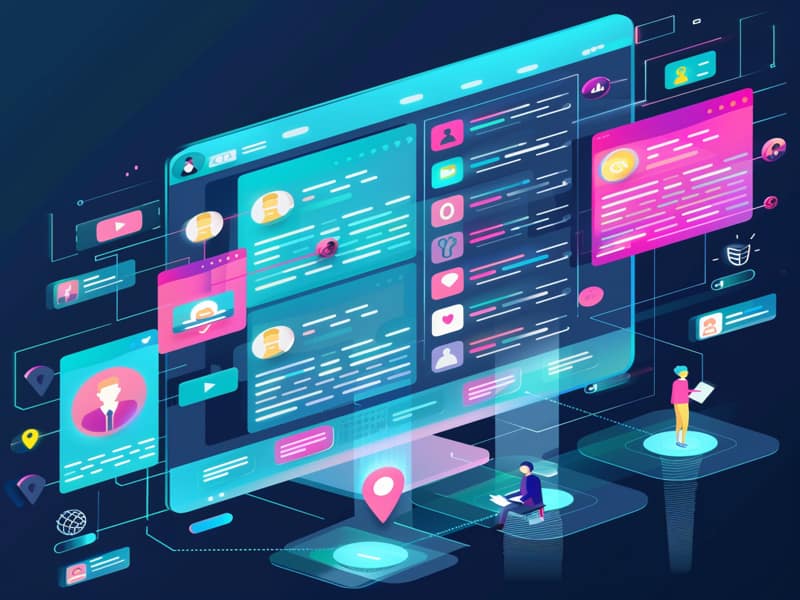IBM API Connect Training | Learn IBM API Connect Course
What is IBM API Connect?
IBM API Connect offers an affordable cloud service for designing, developing, managing, and protecting APIs.
APIs allow multiple programs and systems to communicate and share data seamlessly.
IBM API Connect provides services and technologies that enable businesses to design, release, maintain, charge for, and charge for APIs as part of their business strategies.
IBM API Connect additional capabilities include analytics, access control, developer onboarding, and compatibility with IBM and third-party products.

Benefits of IBM API Connect
IBM API Connect assists companies in the establishment, management, and growth of APIs:
1. Usability:
IBM API Connect makes API design, development, management, and monitoring straightforward; it features documentation tools, developer portals, and onboarding solutions to make implementation quick and smooth.
2. Advanced Security:
IBM API Connect offers access control, encryption and authentication features to protect APIs.
3. Scalability:
With its cloud infrastructure, IBM API Connect can efficiently handle large API traffic volumes; its auto-scaling and load-balancing features provide maximum availability.
4. Integration:
IBM API Connect allows companies to integrate more advanced cloud offerings by linking with IBM Cloud Functions, Watson and other data sources.
5. Analytics and Monitoring:
IBM API Connect provides companies with tools for monitoring API usage, performance, and security, with built-in analytics and monitoring solutions. This data makes API optimization and problem detection possible.
6. Standards-based:
IBM API Connect supports industry-standard APIs Open API (formerly Swagger) and OAuth for easier development integration between IBM API Connect and other tools and systems. Developers may use it to easily link API Connect with tools and systems more efficiently.
7. Monetization:
IBM API Connect provides rate restriction, charging, and subscription management features that open new revenue sources for organizations. APIs offer potential sources of new income generation.

IBM API Connect Training

Prerequisites of IBM API Connect
Here are a few qualifications to assist with learning IBM API Connect effectively:
1. Fundamental Knowledge of APIs:
Before engaging IBM API Connect, you must develop an in-depth knowledge of HTTP protocol, RESTful APIs and all aspects of APIs in general – this includes HTTP/2 RESTful APIs and familiarity with XML/JSON standards and their usage.
2. Development Tools:
For more efficient API creation, testing, and management, IBM API Connect integrates with several development tools, such as Swagger, Postman, and IBM App Designer.
Knowledge of these technologies may also assist in your efforts to develop, test, and manage APIs efficiently.
3. Technical Knowledge:
Understanding programming concepts such as variables, loops, and conditional expressions will prove immensely helpful for users of IBM API Connect.
4. Expertise with IBM Cloud:
IBM API Connect connects with Watson, Cloud Functions, and Databases within IBM’s Cloud service offering to craft more complex APIs more easily.
Experience using these services makes developing APIs less time-consuming.
5. Security concepts:
IBM API Connect provides robust security features, such as access control and authentication, that require understanding to create and deploy APIs safely.
6. Budget and Planning:
IBM API Connect Online Classes offers several price plans depending on data transfer volume and monthly API calls. This makes selecting one easier for any organization based on budget constraints and API usage needs. Understanding your requirements might assist you in choosing an appropriate plan.
7. Time Commitment:
Learning IBM API Connect may take significant effort, depending on your level of expertise and the complexities of your API project.
Fulfilling these requirements could ensure you’re ready to appreciate IBM API Connect and fully utilize its capabilities. IBM API Connect Tutorial
IBM API Connect Tutorial
Introduction to APIs
AP is defined as a set of functions or protocols that can be used to develop software applications and expose businesses to them. APIs are essential for companies to access and utilize their digital assets or services.
These APIs have three levels: public, private, and business partners. Private APIs are restricted to organizations within a company, while business partners are internal partners.
The API Economy refers to exposing digital business assets or services to third parties as APIs, intending to unlock additional business value.
There are two types of web services: Web Services and Soap Services, as well as REST APIs and SOAP APIs.
JPA is structured according to the principles of Representational State Transfer and typically uses the JSON data format.
SOAP API is a traditional web service exposed as an API with a base in either XML or JSON format.
Difference between AP and API Gateway:
AP Gateway is mainly meant for security purposes, such as providing SSL proxy profiles and network-level security.
However, API Gateway exposes back-end data as a service, while API Gateway exposes them as APIs. Mobile applications can call APIs using JSON and JSON data.
The main difference between AP and API Gateway is that AP allows for calls from any service, either from data or from the API itself.
In contrast, AP is mainly meant for AP mobile applications or APS production connections.

IBM API Connect Online Training

Modes of learning IBM API Connect
IBM API Connect offers various learning styles and preferences to help you get acquainted with its platform.
Following are several approaches to IBM API Connect learning:
1. Online documentation:
IBM has provided extensive online documentation of all its capabilities, principles and best practices regarding IBM API Connect use for self-paced learners interested in exploring this platform. This resource makes for excellent study!
2. Tutorials and Guides:
IBM offers several instructional materials to guide customers using IBM API Connect Class, including tutorials to walk them through creating APIs, security implementation, and integration setups.
3. Online Courses:
IBM Skills provides IBM API Connect Online courses covering various API Connect topics at all learning levels, from beginner to intermediate, making them an excellent solution for people wanting structured education.
4. Community:
IBM API Connect users and developers are highly engaged. Join forums, user groups, or exchange with peers to seek answers to your inquiries or gain from others’ experiences.
5. Training and Workshops:
IBM API Connect Online Training provides instructor-led seminars on IBM API Connect, which include practical industry insights and peer networking opportunities. Their workshops also feature both.

IBM API Connect Certification
Organizations can use IBM API Connect various certification schemes to ensure the security, dependability, and performance of their APIs.
Validating their API implementation and adhering to industry best practices, these certifications may give developers and companies additional value.
IBM API Connect certifications ensure reliable API implementation by companies and individuals to follow industry best practices and keep API users safe.
Applicants and organizations must complete an application, validation, testing, documentation, and continuing compliance procedure to obtain these certifications.

IBM API Connect Course Price


Kumari
Author